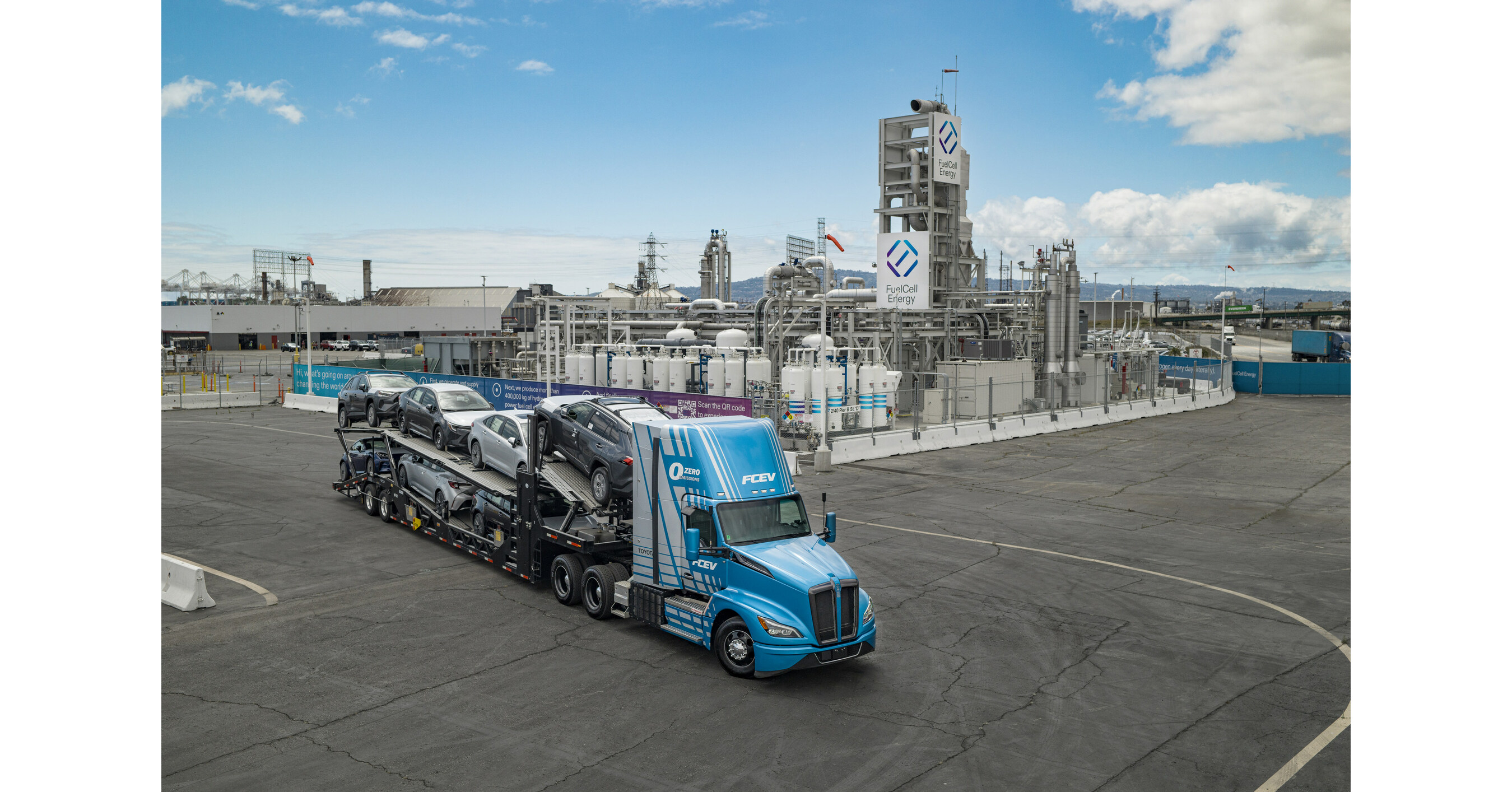
The partnership between FuelCell Energy and Toyota resulting in the 'Tri-gen' system is indeed a remarkable achievement that signifies hope in addressing climate change. This innovative technology holds great promise for revolutionizing our approaches to energy production and transportation.
A Foundation Built on Collaboration
FuelCell Energy, a leader in green energy tech, teamed up with Toyota, a giant in the car industry, to create the Tri-gen system. This strong collaboration combined knowledge in fuel cell tech and commitment to eco-friendly solutions. Where did they choose to set up this innovative project? The busy Port of Long Beach, California – an ideal illustration of an industry that would gain significantly from transitioning to sustainable energy.

The Power of Three: Unveiling the Tri-gen System
The Tri-gen system fulfills its name by producing three main results at once: green electricity, green hydrogen, and drinkable water. This is made possible using biogas, an eco-friendly substitute for conventional fossil fuels. Let's explore the importance of each outcome.
Renewable Electricity: The Tri-gen system generates a significant 2.3 megawatts of eco-friendly electricity, ample to fully supply power to the Toyota Logistics Services (TLS) facility at the Port of Long Beach. This not only lessens reliance on the traditional grid but also reintroduces clean energy into the system.
Renewable Hydrogen: Hydrogen, a green fuel with great promise, is an important output of the Tri-gen system. It powers both Toyota's Mirai cars and Kenworth T680 Class 8 trucks for port operations in California.
Usable Water: FuelCell Energy and Toyota's collaboration resulted in the creation of the Tri-gen system, which emphasizes resource efficiency by producing up to 1,400 gallons of usable water per day as a byproduct of hydrogen generation. This water is then repurposed for car washing operations at the TLS facility, reducing their reliance on freshwater sources.
Tom Stricker, Group Vice President of Sustainability and Regulatory Affairs at Toyota, aptly captures the essence of the project: "This groundbreaking facility shows that there are ways to reduce our emissions and burden on natural resources with scalable technology based on hydrogen."
>> In Other News: Hyzon and New Way Unveil North America's First Hydrogen Fuel Cell Refuse Truck at Waste Expo
A Beacon of Sustainability: The Impact of Tri-gen
The Tri-gen system's significance goes far beyond its innovative design. Here's a glimpse into the positive impact it creates:
Reduced Carbon Emissions: The Tri-gen system is set to reduce CO₂ emissions from the power grid by more than 9,000 tons each year. This fits well with Toyota Logistics Services' and Port of Long Beach's environmental objectives as they strive to be the world's inaugural zero-emissions port.
Promoting Clean Transportation: The Tri-gen system's clean-burning hydrogen fuel helps reduce carbon emissions in transportation at the Port of Long Beach. This could cut diesel use by more than 420,000 gallons annually, leading to a substantial enhancement in air quality.
Resource Efficiency: The Tri-gen system's capacity to produce usable water highlights a dedication to preserving resources. This not only lessens reliance on freshwater sources but also illustrates a comprehensive approach to sustainability.
Conclusion: A Call to Action
The Tri-gen system truly represents human creativity and innovation in addressing climate change. It highlights the vast potential of clean energy technologies to transform our approach to powering the world. As Jason Few, CEO and President of FuelCell Energy, aptly states: "As a company, we are living our purpose when we enable visionary customers like Toyota to decarbonize their operations and harness the energy solutions offered by hydrogen."
Continued investment in research and development is essential for advancing innovative technologies like the Tri-gen system. Government incentives that promote clean energy adoption play a vital role in driving this progress forward. Together, these efforts will help unlock the full potential of eco-friendly solutions like the Tri-gen system and pave the way for a cleaner, greener future for generations to come.
Subscribe to the newsletter
Daily decarbonization data and news delivered to your inbox
Follow the money flow of climate, technology, and energy investments to uncover new opportunities and jobs.
Latest issues
-
Inside Hyundai’s $6B Plan to Flip U.S. Energy
Inside This Issue 🏗️ Hyundai Unveils $6B Hydrogen-Powered Steel Mill in Louisiana, Aims to Position State as National Energy Leader 🤝 Deep Sky Inks Next DAC Deal in Germany with Greenlyte Carbon T...
-
Is Canada Quietly Winning the Carbon Race?
Inside This Issue 🍁 Inside Canada’s Quiet Takeover of the Carbon Capture Industry ✈️ Phillips 66 to Supply SAF to British Airways in Calif 💧 HyVera Distributed Energy Launches Green Hydrogen-On-De...
-
This JPMorgan Deal Could Reshape the Future of Carbon Markets
Inside This Issue 🌍 1PointFive Announces 50,000 Metric Ton Carbon Removal Agreement with JPMorganChase 📊 Carbon Direct Unveils First Empirical Baseline on Carbon Dioxide Removal and Environmental ...
Company Announcements
-
Pacifico Mexinol project, a 6,130 MT per day ultra-low carbon methanol production facility worth more than US$3.3b will be located near Topolobampo, Ahome, Sinaloa. Once operational in 2029, Pacif...
-
Microsoft Signs Deal to Remove 1.1 Million Tons of CO2 Through Waste-to-Energy Carbon Capture
Oslo-based power and heat provider Hafslund Celsio announced today a new carbon removal offtake agreement with Microsoft, with the tech giant purchasing more than 1 million tons of carbon credits o...
-
Bayou Bend Project Aims to Advance Carbon Dioxide Storage Along the US Gulf Coast
The joint venture is intended to help critical industries in the area lower the carbon intensity of their operations. Jay LeJeune likes a challenge. That’s why he signed up to be part of the Bayou...
-
Approval in Principle (AiP) for World's First LCO₂ / Methanol Carrier
Tokyo, June 30, 2025 - Mitsubishi Shipbuilding Co., Ltd., a part of Mitsubishi Heavy Industries (MHI) Group, and Mitsui O.S.K. Lines, Ltd. (MOL) have acquired Approval in Principle (AiP)(Note1) fro...